
Grammarly’s software engineering internship program is designed to cultivate the next generation of tech talent. Our program combines practical, hands-on experience with mentorship, equipping interns with valuable skills for their future careers. This year, we welcomed 12 interns from Germany and the US, with each intern contributing to meaningful company initiatives. In this post, we’ll introduce you to some of our interns and their projects and hear what they learned from their internship experience.
Jo Griggs
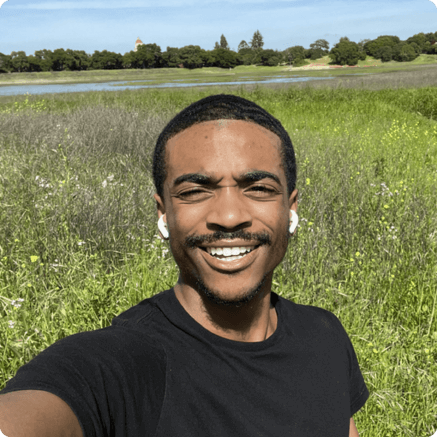
Team: Data: Quality and Trust
School: Stanford University, California
Jo worked on an internal tool called Stereoscope that allows employees to compare text recommendations from different versions of Grammarly. He integrated large language model (LLM) feedback into the tool by building a new component that displayed human evaluation metrics, LLM evaluation metrics, and a comparison between the human and LLM metrics. The project required navigating multiple backends and learning new languages like Clojure. This required Jo to take his technical and soft skills to the next level. For example, he learned to break down new codebases and collaborate asynchronously across time zones.
To quote Jo: “Having a hunger to learn is critical to succeed as an intern at Grammarly. I’ve enjoyed this learning process because I approached it with a desire to add more tools and skills to my repertoire.”
Khue Nguyen

Team: Machine Learning Operations
School: Humboldt College, Berlin
Khue was particularly excited to join the machine learning operations team. “With the emergence of large language models, I’m eager to explore this technology and see how Grammarly’s product adapts to these new capabilities,” Khue explained. She channeled this passion into her internship project, in which she assessed various deployment methods by benchmarking the performance of various engines and serving frameworks.
While most of her work leveraged Grammarly’s cloud infrastructure, she encountered unexpected challenges with a particular vendor framework. After multiple bouts of trial and error failed to reveal the answer, she wondered if it could be due to a deeper nuance of the framework design. A meeting with the vendor confirmed her hypothesis, creating a path forward on the issue.
Says Khue, “Through this challenge, I’ve learned about the complexity of real-world engineering, where problems can arise from unexpected sources. Thanks to my team, I’ve learned that effective problem-solving often requires looking beyond the obvious, collaborating with experts, and thinking creatively.”
Gabriele Matiddi
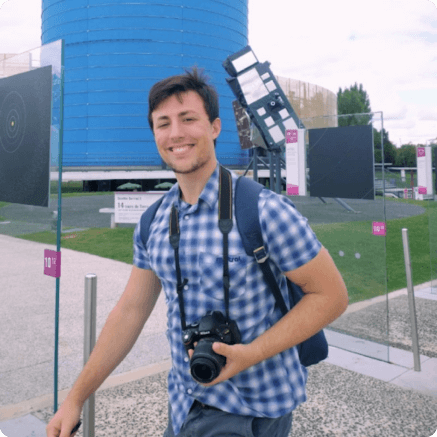
Team: Rewrites
School: Sapienza University of Rome
When Gabriele received an offer for a Grammarly internship, it was a no-brainer. “I was excited by the chance to work on cutting-edge AI technology revolutionizing communication,” he explained. “Having used Grammarly for my writing, I was eager to contribute to its development. I also deeply resonated with their values, such as [the importance of being] gritty,” he explained. During his internship, he developed a prototype for voice-based message composition, which challenged him to explore new technologies such as large language models and deployment tools like Docker and Kubernetes. Despite his initial lack of experience in these areas, Gabriele’s problem-solving skills and the support of his team helped him succeed.
“Grammarly’s commitment to fostering a diverse and inclusive environment creates a space where everyone’s ideas and perspectives are valued,” Gabriele explained. “This made me feel comfortable taking risks and trying new approaches. For my project, instead of learning every new technology, I dove into the codebase, experimenting and learning as I went. Whenever I hit a roadblock, I could always count on my team for guidance.” By adopting a learn-by-doing approach and with the support of his team, he was able to start contributing on day one.
Yerassyl Altay
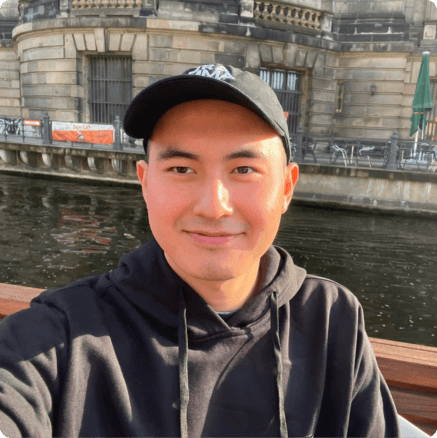
Team: Security Automation
School: IU Internationale Hochschule, Germany
Yerassyl worked on an initiative to improve the efficiency of the Removate bot, an internal tool for automatically updating code dependencies. His project’s goal was to refine the bot’s scheduling, ensuring timely updates without disruptions. Through this project, he deepened his technical understanding of infrastructure, automation tooling, and pipeline management. Beyond the technical skills he learned, Yerassyl valued the lessons he gained from collaborative discussions with colleagues.
“My team fostered constructive debate, viewing disagreements as opportunities for growth,” Yerassyl said. “For instance, they advised me to prioritize solving the existing problem rather than preemptively solving future problems that may not materialize. This mindset has already helped me save time on new projects.”
Artem Yushko
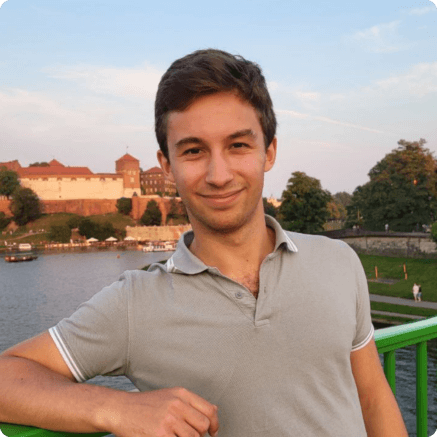
Team: Core Product
School: Carleton College, Northfield, Minnesota
Artem contributed to a project that sought to understand the relationship between a writer and their audience. To analyze the data, Artem wrote a service from scratch—an endpoint that pulled and filtered data across multiple sources. Given the complexity of the existing codebase, the task was demanding. However, Artem succeeded by collaborating closely with his mentor and team on the project scope and technical approach.
“Thanks to the mentorship and support from my manager and mentor, I could learn the best practices right away without stumbling my way through,” Artem said. Through the collaboration, Artem learned that effective teamwork is crucial to delivering high-quality code.
Johan Urban
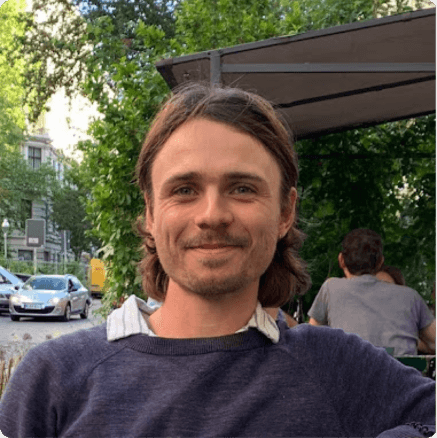
Team: Growth, Paid Conversion
School: Radboud Universiteit, Nijmegen, Netherlands
Johan spearheaded an experiment offering advanced suggestions to new Grammarly users, showcasing the value of these premium Grammarly features. This cross-functional project required close collaboration with data science, design, and product management. Through this collaboration, Johan learned how engineering could act as a bridge between groups with different contexts and perspectives.
“In the initial phases, I proactively communicated the product’s technical constraints, enabling us to adapt the scope without compromising our ability to learn,” he explained. All that hard work paid off: The experiment is now live, providing valuable insights even after Johan’s internship has concluded.
Looking forward
With all this incredible learning, we are excited to see what our interns do next. If you want to follow in their footsteps, we encourage you to apply for next year’s internship program.